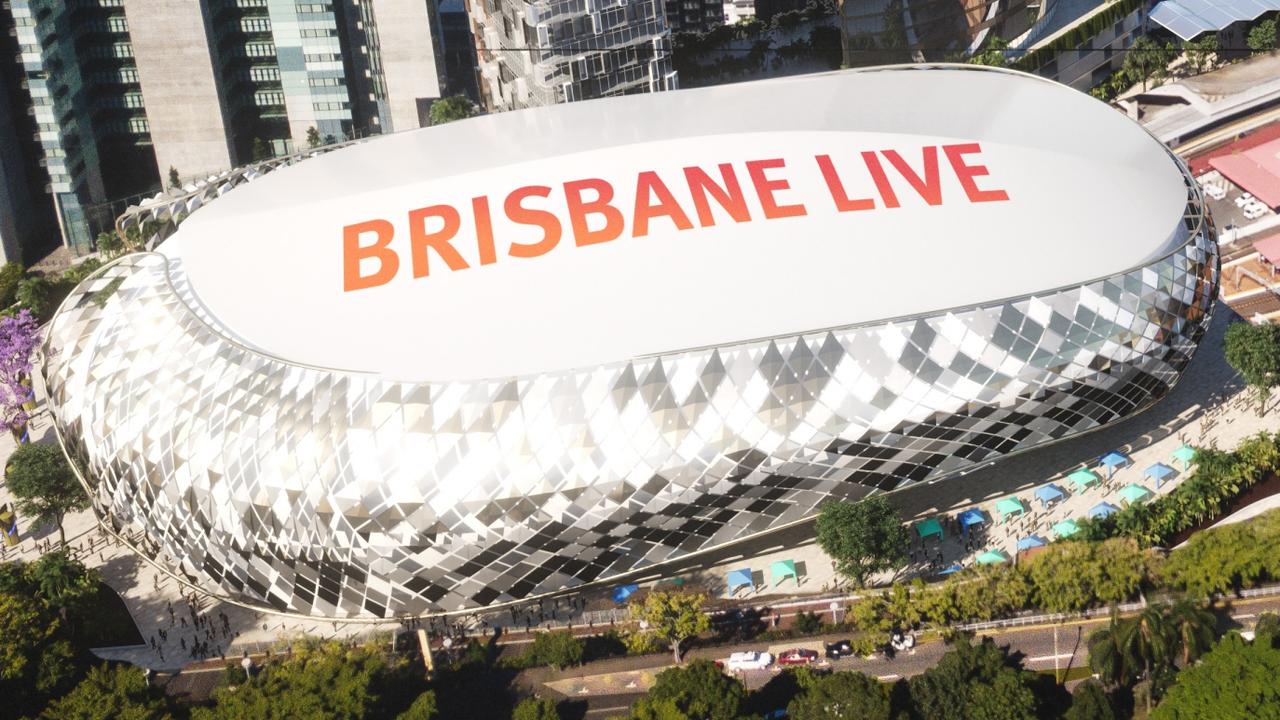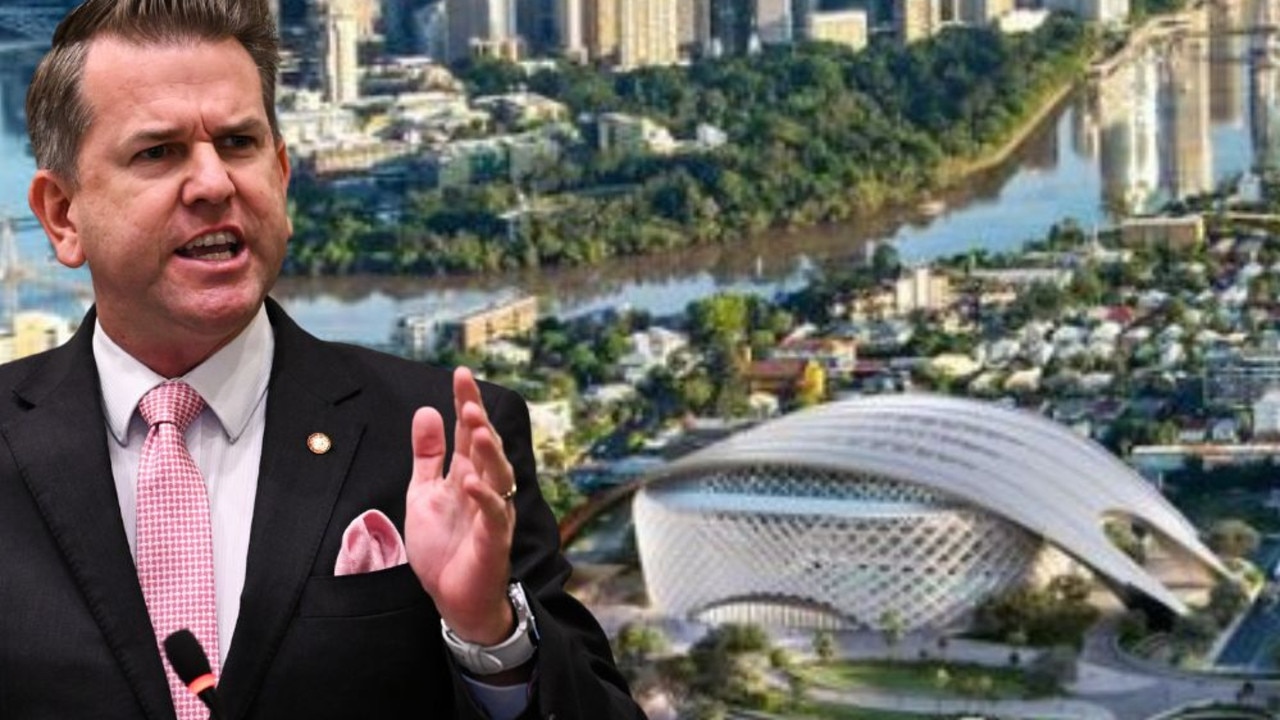Paralympian Karni Liddell says Brisbane’s lack of accessibility hasn’t changed in 30 years
Games organisers have been warned ‘time is running out’ as some of Brisbane’s biggest attractions have been exposed for their woeful accessibility for people with disabilities.
Future QLD
Don't miss out on the headlines from Future QLD. Followed categories will be added to My News.
Brisbane will need every second of the next 10 years to improve its woeful lack of accessibility ahead of the 2032 Olympic and Paralympic Games as disability advocates say the city is “ill prepared” to be the host.
The Olympics must be used as an opportunity to take disability access “to the next level”, advocates say, amid calls for the Queensland Government to apply its inclusive design principles for new facilities such as the revamped Gabba to all new government projects.
Queenslanders living with disability, including former world-record swimmer Karni Liddell, say Brisbane’s accessibility has remained stagnant for decades and the disability sector must be consulted at every turn before the Games to ensure the city is truly accessible for all.
Ms Liddell called out hot spots and tourist drawcards Fortitude Valley, Queen St Mall and Kangaroo Point Cliffs as among the least accessible places in the city.
EDITOR’S VIEW: CITY MUST BE MORE ACCESSIBLE BEFORE GAMES
“Despite everything we’ve done, as people with disabilities, it’s sad to see. It wouldn’t take much to change,” she said.
Ms Liddell said it was possible to create a fully accessible city before Brisbane hosts the Olympic and Paralympic Games in 2032, but the revamp would take every second of the next 10 years to get right.
“Everything from now until then has to have someone with an electric wheelchair involved. I need to be involved. Don’t follow architects, don’t follow the standards, you need to have someone in a wheelchair at all times,” she said.
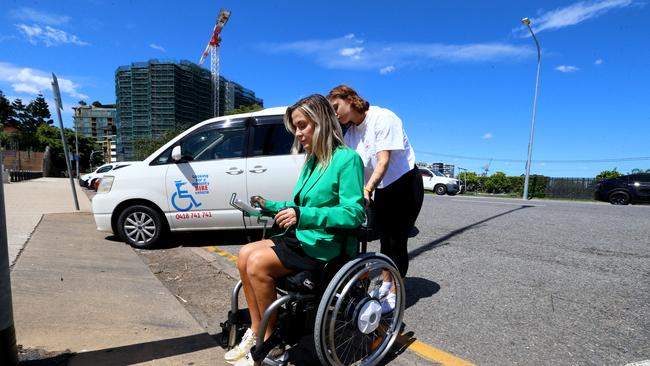
David Clark
The situation in the city today was far from what it needed to be in preparation for the 2032 Games, according to Youngcare Connect manager Shane Jamieson who said the Brisbane was “completely ill prepared”.
“We are a city that today is completely ill prepared to host the games and having the Paralympics today, would cause absolute mayhem,” he said.
Future development would rely on huge amounts of planning and consultation with people with disabilities who are accessing the city daily, Mr Jamieson said.
“It’s great that there’s a carrot there in the Games to motivate us as a city, but we should be looking as a community to what we can do today for people in a wheelchair tomorrow,” he said.
The Queensland Government has adopted inclusive design principles for new facilities such as the revamped Gabba
But Queensland Human Rights Commissioner Scott McDougall said universal design should be implemented across the board.
“Queensland has been showing some leadership through Minister De Brenni on that front, taking up the national building code that has the silver standard of universal design so there has been some progress made there but there is still some resistance from the building community in implementing that,” he said.
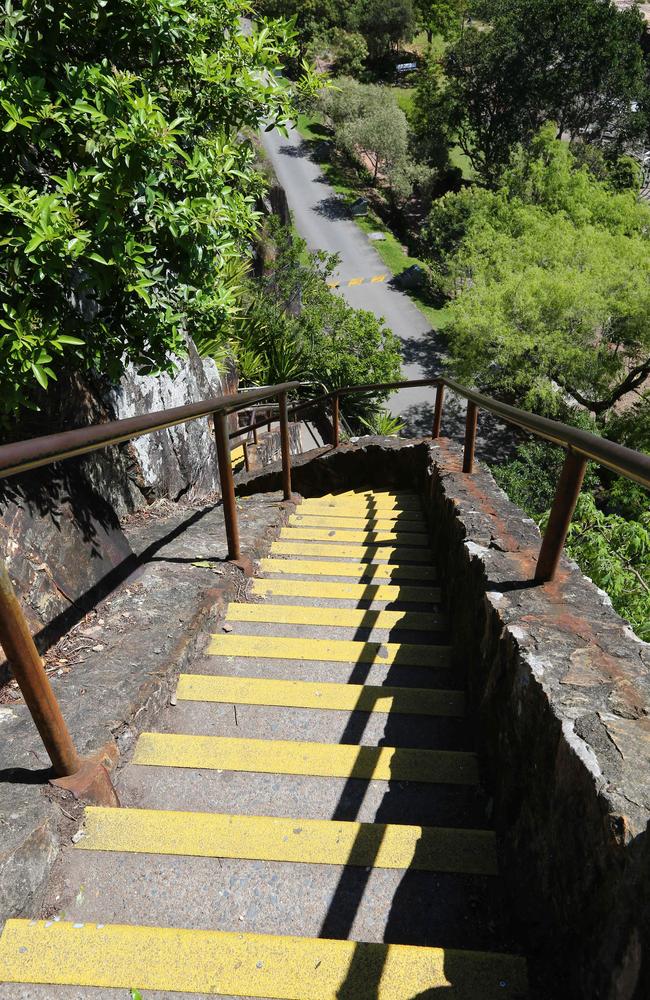
Mr McDougall said the state was still well behind where it should be in terms of making public transport accessible for people with disabilities.
“As far as the government’s commitment of being fully accessible by 2032 for the Queensland Olympics they are saying only the key transport hubs used to access games venues would meet the criteria, which is obviously not good enough,” he said.
Around 40 per cent of train stations across south east Queensland were only accessible by stairs, he said.
“At the heart of human rights is really a person’s dignity and it is hugely undignified to be put in a position where you can’t go about doing the most basic things simply because our society does not provide simple mechanisms of access for you,” he said.
For Ms Liddell, physical barriers arise at every corner when travelling through Brisbane, particularly in the CBD and Fortitude Valley.
From the majority of venues on the strip having a flight of stairs on entrance to the seemingly pointless single step at the door of every other club, Ms Liddell said coming out to socialise has become unnecessarily difficult for many people with mobility issues.
“The other day I was rushing around Queen St Mall, I went to go into Portmans and I was stopped by a step at the door. I couldn’t believe I couldn’t get in, that store is brand new as well,” she said.
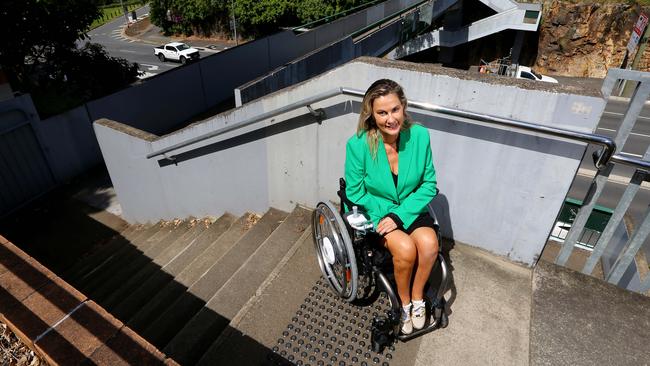
“It’s not just people in wheelchairs, it’s people with prams, with mobility issues, older people and us all together.”
As a teenager, the Paralympic swimmer would usually head into Fortitude Valley for shopping and to go out clubbing, but it was never easy with her friends often carrying her up and down stairs to get into clubs.
“This place (Fortitude Valley) has always felt highly anxious for me to come out. I never knew if I could get up the stairs, be able to get home, or go use the toilet,” she said.
Even if she was able to get into the club, most restaurants, cafes and clubs had high bars that stopped her from independently ordering a drink and inaccessible toilets whether it was down a flight of stairs in a precarious spot, she said.
And if she was going shopping, she’d simply have to wait at the entrance of the store and call out to a worker until they could pick out what she wanted to look at.
“I can’t believe I’m 43 thinking about myself as an 18-year-old kid living the same life that I am now and nothing has changed. That’s gross,” she said.
“The Colosseum has a lift. If you put a lift in the Colosseum you can put a lift into Laruche.”
And while getting into a venue can be virtually impossible in most areas in Brisbane, Ms Liddell said getting around town is no easier.
“There’s no reason for us to have cobblestone pathways here. They’re put in as a feature, they need to be changed now,” she said.
“I’ve seen people fall out of their wheelchairs and prams roll over. We have no excuse.”
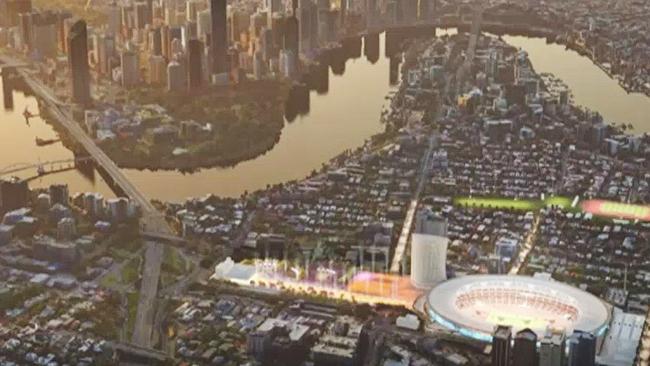
At Kangaroo Point, Ms Liddell can take her chair all the way up to the playground, despite some pathways coming to a dead end, before she’s stopped by a small flight of stairs between her and the overpass heading across Main St.
And heading down the cliffs to enjoy the view also isn’t an option with no other way for those with mobility issues to go down to the park without driving the long way round.
Meanwhile, parking, or lack thereof, around Brisbane also acts as a major barrier to getting around town, with Ms Liddell adding on an extra half-hour or more to every outing in order to find an appropriate, close and accessible park.
In Fortitude Valley and the city, minimal disabled parking or on street parking with enough room to unload a 35kg wheelchair meant heading in to run a few errands or catch up with friends was less than inviting.
“I wouldn’t have thought a 2000s Paralympian would be sitting here 23 years later having the same conversation I was having back then,” she said.
For wheelchair-bound Todd Winther, 38, from Nundah, his two biggest barriers when moving around Brisbane are the narrow pathways filled with potholes and risky public transport.
“Some of the train stations don’t have lifts to get onto platforms, or they have very steep access ramps that aren’t really conducive to wheelchairs,” he said.
“All buses have wheelchair access but they don’t have restraints so it’s really nerve wracking. “If you’re in a powered wheelchair it could weigh up to 175kg and if a driver goes around the corner too quickly, it can just tip on its side.”
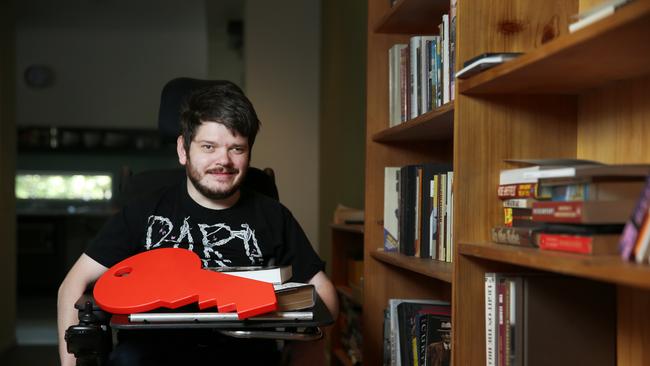
With accessibility at the front of mind for everyone who has a disability, ignoring accessibility issues would only be a detriment to Brisbane’s reputation going forward, he said.
“If places like the Valley and the CBD still aren’t accessible by then (2032), what does that say about our city?
“But if they want to fix it for the Paralympic Games, time is really running out,” he said.
“The government need to make sure that every single footpath, public transport route and venue is wheelchair accessible. And by doing that, the government would be doing the bare minimum.”
Mr Winther said the government needs to “cast its net wide” to focus on accessibility for all disabilities from wheelchair bound to those with hearing or sight impairments.
“Its not the current governments fault, or the previous government. It’s about an attitude shift about how we see disability,” he said.
“We have as much as right as everyone else to go places in the community.”
Queensland Disability Network vice-president Sharon Boyce, who was diagnosed with juvenile chronic arthritis as a child and has used a wheelchair all of her teenage and adult life, said the Olympics were an opportunity to take disability access “to a new level”.
She said there needed to be not only ramps to accommodate wheelchairs and better signage, but also an emphasis on drop-off points and lift availability.
Ms Boyce said she attended an Ed Sheeran concert at the Gabba and notable improvements would need to be made ahead of the Games.
“It was good that I was able to go, but there was only one set of available seats, and hopefully there’ll be more choice,” she said.
“I need to not just be able to get there independently but also got the food area independently, go to the toilet independently, and have dedicated parking areas.
“That’s not just for people in wheelchairs like me, but also people on crutches, people with vision problems, and even people who aren’t disabled but have to push prams.”


